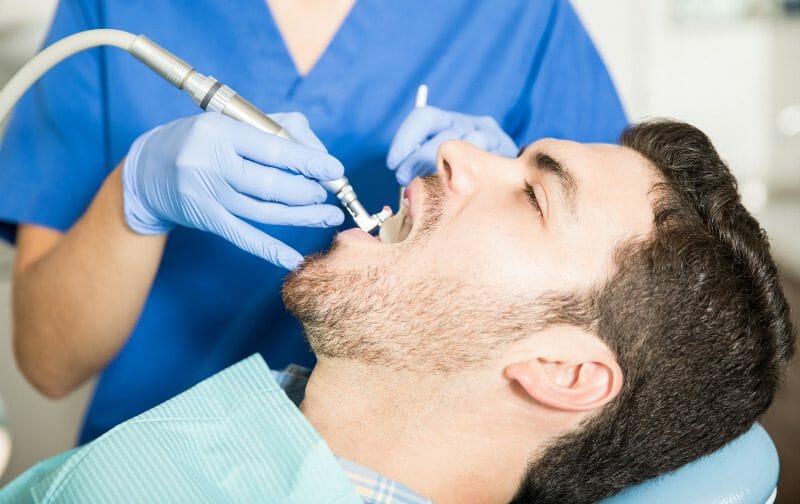It’s easy to take our teeth for granted. We brush them every day, sometimes multiple times, and we expect them to just keep working without any problems. But the truth is that our teeth are susceptible to all sorts of issues, both big and small. And while most of these problems can be fixed with a trip to the dentist, some dental emergencies require immediate attention in order to avoid further damage or even loss of the tooth.
What Is a Dental Emergency?
A dental emergency can strike at any time and often without warning. It’s important to be able to spot a dental emergency so you can get the treatment you need before it’s too late.
There are many different types of dental emergencies, but some of the most common include:
Toothaches: A toothache is usually a sign that there is something wrong with your tooth. If you have a toothache, it’s important to see a dentist as soon as possible so they can determine the cause and provide treatment.
Broken teeth: If you have a broken tooth, it’s important to seek dental treatment right away. A broken tooth can be extremely painful and if left untreated, it could lead to further damage or even infection.
Lost fillings: If you lose a filling, it’s important to see a dentist as soon as possible. A lost filling can leave your tooth exposed to bacteria and other debris, which could lead to an infection or further damage.
If you think you may be experiencing a dental emergency, it’s important to see a dentist right away. delay in treatment could result in further damage or even loss of your tooth.
5 Warning Signs of a Dental Emergency
There are a few warning signs that indicate you may be having a dental emergency. When it comes to dental emergencies, the best thing you can do is to be proactive and know the warning signs. That way, you can seek treatment before the situation gets worse. Here are some warning signs of a dental emergency:
- Severe toothache that doesn’t go away with over-the-counter pain medication. This could be a sign of an infection or abscess.
- Cracked, chipped, or broken tooth. If you have a tooth that’s cracked or chipped, it’s important to see a dentist right away. A cracked tooth can become infected, and a chipped tooth can become more damaged if not treated.
- Loose tooth. If your tooth is loose, it’s important to see a dentist as soon as possible so they can determine the cause and provide treatment.
- Bleeding from the mouth that doesn’t stop after applying pressure for 10 minutes. This could be a sign of an infection or other serious issue.
- Swelling in the mouth or face. This could be a sign of an infection that needs to be treated immediately.
If you experience any of the following, please call your dentist or oral surgeon immediately.
How to Prevent a Dental Emergency
A dental emergency is defined as any urgent dental problem that requires immediate treatment to prevent further damage to the teeth, gums, or jaw. Dental emergencies can range from a cracked tooth to a lost filling.
If you are experiencing a dental emergency, it is important to see a dentist right away. In the meantime, there are some things you can do to help ease your pain and prevent further damage.
If you have a cracked tooth, rinse your mouth with warm water and apply a cold compress to the outside of your face. If you have lost a filling, cover the exposed area with sugarless gum or dental cement. If you have a loose tooth, try to wiggle it gently back into place with your fingers. If you are experiencing severe pain, take an over-the-counter pain reliever such as ibuprofen.
It is also important to take preventive measures to avoid dental emergencies. Be sure to brush and floss your teeth regularly and visit your dentist for routine checkups and cleanings. If you play contact sports, be sure to wear a mouthguard.
Conclusion
Spotting a dental emergency before it’s too late is important for keeping your oral health in check. By understanding the signs and symptoms of various dental issues, you can act quickly to prevent further pain or damage. The best way to ensure that your teeth are healthy is by visiting your dentist regularly, as they will be able to identify any problems before they become an emergency. Furthermore, if you do experience any unusual dental pain or discomfort, it’s important not to hesitate in seeking professional help from a dentist who can provide the appropriate care and treatment.
FAQs
If you’re not sure whether you’re experiencing a dental emergency, check out these three FAQs.
1. What are the most common signs of a dental emergency?
There are a few different things that could be indicative of a dental emergency. If you’re experiencing severe pain, bleeding from the mouth, or have a tooth that’s been knocked out, you should seek immediate dental care.
2. How can I tell if the pain I’m feeling is serious?
Any time you’re experiencing pain in your mouth, it’s best to err on the side of caution and see a dentist right away. They’ll be able to determine whether or not the pain is serious and advise you on the best course of action.
3. What should I do if I have a dental emergency?
If you are experiencing any pain, swelling, or bleeding, it is important to contact your dentist or oral surgeon right away. If you are unable to reach them immediately, go to the nearest hospital emergency room for evaluation and treatment.

